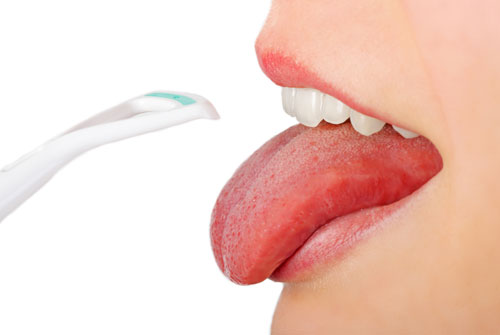Signs of Potential Issues and Care Tips for Tongue Health
Posted on 9/25/2023 by Evan |
 The tongue is a vital, multifunctional muscle that can indicate emerging local or systemic health issues. Knowing possible signs and proactive daily care steps promotes optimal tongue wellness. The tongue is a vital, multifunctional muscle that can indicate emerging local or systemic health issues. Knowing possible signs and proactive daily care steps promotes optimal tongue wellness.
Signs of Potential Tongue Problems Warranting Evaluation
White, yellow, black, or patchy coatings, redness, bumps, ulcers, fissures, tenderness, and trouble moving the tongue could signal problems needing attention. Persistent coatings may reflect overgrowth of yeast or bacteria, poor hygiene, smoking, dry mouth, or excessive antibiotic use. Redness with soreness could indicate injury, infection, vitamin deficiency, nerve damage, or autoimmune reaction. Bumps can be harmless but require an inspection to rule out abnormalities or warts. Ulcers suggest recurring trauma, stress, gastrointestinal issues, autoimmunity, or cancer. Impaired mobility might stem from nerve damage, muscle conditions, or oral cancer. Any persistent changes should be evaluated.
Practicing Diligent Daily Oral Hygiene
When brushing teeth, brushing the entire tongue surface removes bacteria, food debris, and dead cells that cause odor, discoloration, texture changes, and plaque buildup. Reach the back third of the tongue where more bacteria harbor. Soft scrapers can augment brushing but require caution and proper technique to avoid injury.
Staying Well Hydrated
Drinking adequate daily water ensures moisture for a healthy, pink, supple tongue and prevents dryness, allowing the overgrowth of white or brownish bacteria, yeasts, and fungi. Swishing water after eating also cleanses the mouth. Avoiding alcohol, caffeine, smoking, and mouth-drying medications helps too.
Managing Any Underlying Systemic Conditions
Seeing your doctor for proper management of any medical issues like diabetes, anemia, nutrient deficiencies, autoimmunity, gastrointestinal disorders, and immunodeficiency helps prevent associated tongue problems. Quitting tobacco also improves overall mouth health.
Simple vigilance, proactive care, and prompt medical attention for any persistent worrisome changes help maintain optimal tongue health and function. Careful hygiene and hydration provide a vital foundation.
|
|